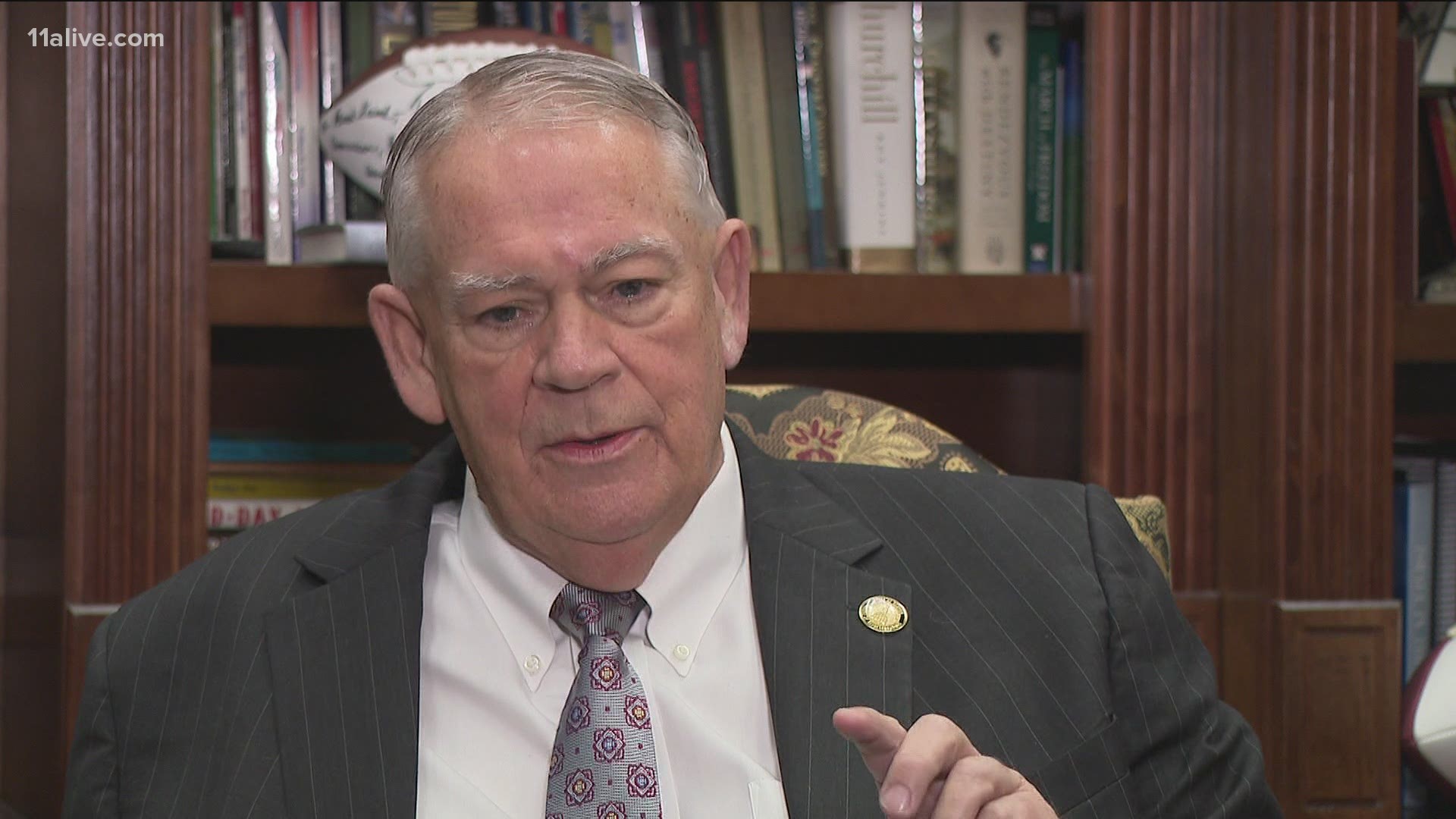ATLANTA — House Speaker David Ralston said he thinks the Georgia House will change a Senate bill that would repeal no-excuse absentee voting.
Ralston is among the Republicans broadly supporting election reforms introduced after unhappy supporters of former President Trump complained about the 2020 election. But Ralston is a powerful opponent of the effort to remove no-excuse absentee voting.
Absentee voting set records in Georgia in the last election, when Democrats won three statewide races. Any registered voter was eligible to vote absentee last year. The Republican-led legislature made that the law 16 years ago.
But a Senate bill passed Monday would require absentee voters to give a reason to vote absentee –
The absentee voter would have to be:
- age 65 or older;
- or have a disability;
- or give constant care to someone disabled;
- have an employment conflict;
- or be temporarily absent from home.
Ralston thinks that restricts absentee voting too much.
"I don’t want to repeal no excuse absentee voting," Ralston told 11Alive. "I would anticipate there would be some changes made by the time it reaches the floor of the House."
The House speaker is the most powerful individual in the Georgia legislature. Nothing comes to the floor of the House for a vote unless the speaker wants it to happen. It will be Ralston’s decision whether to vote on the Senate bill that passed Monday that would repeal no-excuse absentee voting.
Asked if the section repealing no excuse absentee voting would be a "deal killer," Ralston answered: "It would be tough. I mean, it is true, that was passed by a Republican General Assembly in 2005. In the House at least, I’m not sure there’s an appetite to do that."
Ralston said he supports a "measured" approach to election reform, embodied by the GOP House bill that passed on a party line vote last week. That bill did not repeal no-excuse absentee voting.
Asked if he would "block" the Senate bill, Ralston declined to answer.
"I'd be giving away my secrets here," he said with a chuckle.
Ralston predicted the Republican election bills would end up in a conference committee – which meets in secret and agrees to changes that are then submitted to both the House and Senate. The speaker has the power to appoint members from the House.

